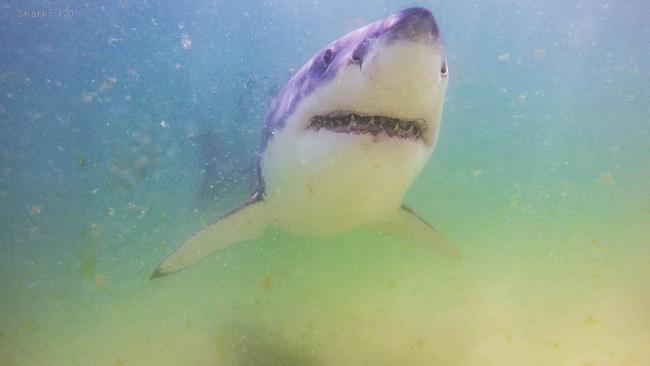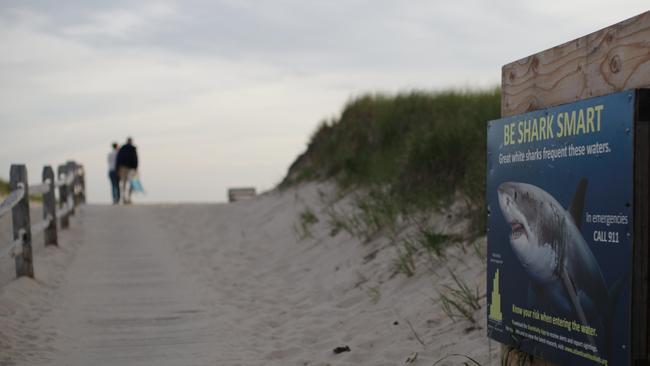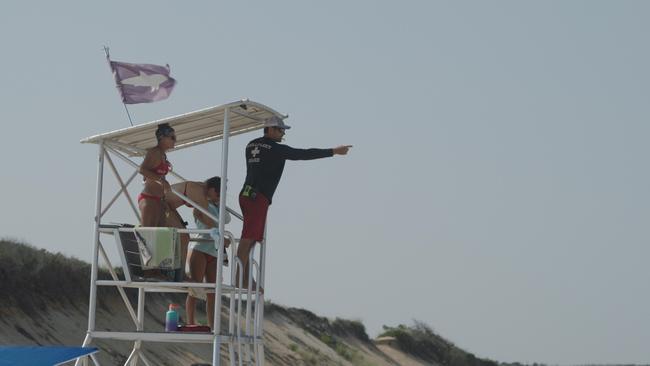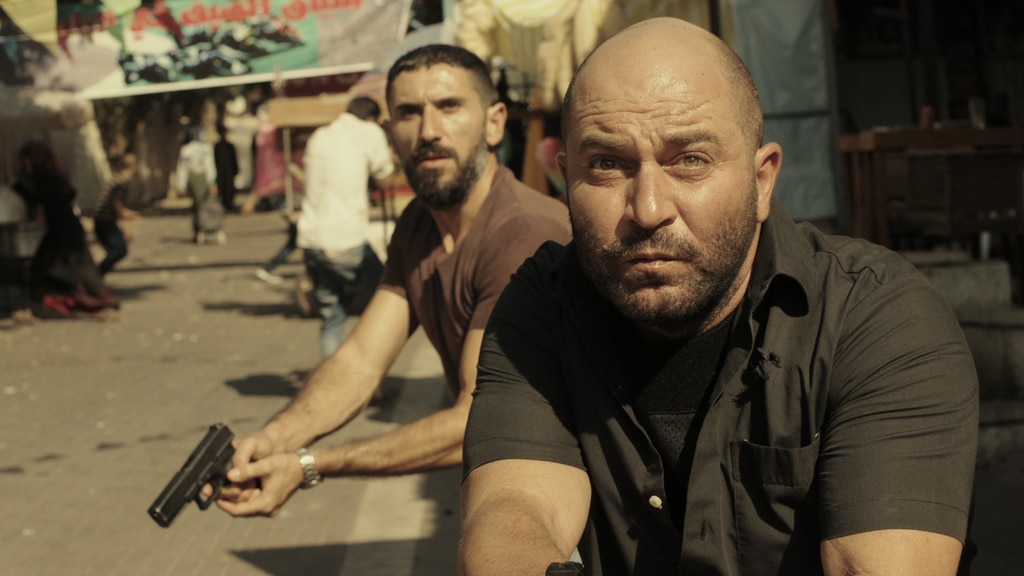‘If you saw what we see, you’d never go back in the water’: new documentary looks at dangers of great white sharks on Cape Cod
The resurgence of great white sharks has forced communities to deal with a new kind of violence.

‘The Shark Attack That Changed Cape Cod Forever” the press called it, and it’s the subject of the new HBO documentary film from esteemed filmmaker Ivy Meeropol. After the Bite is the story of how the resurgence of great white sharks in the oceans of the hook-shaped peninsula in the Atlantic Ocean, a short-day trip from Boston, forced local communities to deal with a new kind of violence.
How did the tragic death of a young bodyboarder change an idyllic destination steeped in history, and dependent on beach tourism, forever? And was it possible to live with the great white predators, or hunt and kill them and/or the proliferating grey seal population which the sharks increasingly plundered to survive?
Meeropol is best known for her 2004 film Heir To An Execution, which was short-listed for an Academy Award. It’s the intimate, compelling insider’s look at America’s most controversial execution, that of Meeropol’s grandparents Julius and Ethel Rosenberg who were sent to the electric chair as dangerous Russian spies.
She also wrote and directed Bully. Coward. Victim: The Story of Roy Cohn, which examines the notorious lawyer’s role in the execution of her grandparents; his life as a mover and shaker in Republican politics; and as political mentor to Donald Trump.
If in these films Meeropol evokes a world of activists dedicated to social justice, her latest film is a representation of how exchanges between people and wildlife offer insights into human culture and societies’ fundamental values. And how we must learn humility in the face of nature.

Twenty-six-year-old Arthur Medici, of Revere, Massachusetts, was attacked at Newcomb Hollow Beach – his “happy place” – in Wellfleet in 2018, in the first fatal shark attack in those waters since 1936. Fellow surfers saw a giant eruption of water, followed by the sight of a shark thrashing and whipping its tail back and forth around Medici’s body as his young friend, Isaac Rocha, with whom he had been boogie boarding, swam to try to save him.
A few weeks earlier, New York physician William Lytton, 61, was swimming off nearby Truro’s Longnook Beach when he was bitten by a shark, requiring almost seven litres of blood and multiple surgeries. He escaped by punching the animal in the gill and managed to swim to shore before losing consciousness from blood loss.
Meeropol’s film begins with the aftermath, the terrible shock on the community, talking with lifesavers and local fishermen swapping stories of their encounters with the whites. A resident, Mitzi Riley, tells of how she tried to save Medici, diving in, and swimming to the boys. “There was no blood around us; all the blood was gone. I told the boys how much I loved them. I kissed them both and hollered for God and cried and waited for help to come. I had no clue as to what had just happened.”
Journalist Alec Wilkinson is introduced, who Meeropol uses as a kind of narrator, urbane, compassionate, and literary, his commentary guiding us through the film, providing context. “It was such a haunting story,” he says. “Violence can intersect at any moment it seems like, but one wouldn’t have thought that on a sunny afternoon off the coast of New England that a shadow was waiting.”
These are beaches Wilkinson swam as a young person. The sharks were once called man-eaters; sometimes they are called “the men in grey suits,” since they are grey with white undersides, he later recalled in a New Yorker story. But after the Medici attack the “the world turns in an instant, and nothing is the same after”.
With intimate access, Meeropol and her cameras are granted admittance to the soul-searching public meetings, the Cape having transitioned from a fishing-dependent economy into a water tourism destination, local politicians perplexed by the turn of events. Most tourism revenue for the entire year is earned in summer – precisely when sharks converge around Cape Cod to hunt seals. The local seals are as central to the debate as the sharks themselves, as quickly becomes apparent. Atlantic white sharks have historically preyed on grey seals but largely disappeared from Cape waters after hunting reduced local seal populations in the 19th century. Seals were in danger of extinction or depletion because of human activities.
After the Marine Mammal Protection Act was adopted in 1972, seals recovered in great numbers, the white sharks following. (There are gorgeous shots of large groups of seals sitting in the water together singing, the sound a lacerating musical lament.)
At the meetings the discussion, often heated, revolved around the question of whether the problem is in fact man-made, the seals too protected under various unpopular laws? (And in June 2015 Massachusetts enacted regulations that restricted recreational and commercial activities around sharks, too.)

Was the No.1 role of government safety for the locals or safety for the predators? Government intervention was cool but not at the expense of humans.
Meeropol then turns to the sharks, following the intrepid Greg Skomal and his crew from the Massachusetts Division of Marine Fisheries as they continue their dangerous practice of acoustic tagging and monitoring programs to understand shark behaviour.
Skomal uses a long harpoon-like pole, launched from a long gantry called “the pulpit”, to deploy what’s called a CATS tag (Customised Animal Tracking Solutions), applied to the dorsal fin. Aerial film shows the huge creatures moving nonchalantly, unconcerned, close to swimmers, and around Skomal’s boat, as if nothing is a threat.
Then it’s the seals’ turn, and Meeropol documents the history of culling and the bounties paid for their ears, noses, or flippers. But now, as fisherman Billy Souza says of the protective regulations: “You can’t touch them, you can’t look at them, and you can’t even yell at them as you go past them.” His colleagues also talk of the sharks taking their catch.
“If you saw what we see, you’d never go back in the water.”
As Wilkinson says: “We like to think of our lives as orderly, and easily maintained but one of the places we don’t find co-operation is from the natural world.”
After The Bite is made simply, finding the details of the big picture, and doing it with some understated humour written by Meeropol and Seth Bomse – there’s a drive-in theatre marquee advertising a double feature of Jaws with one of Stephen Spielberg’s later nature spectacles, Jurassic Park.
The photography is from cinematographers Soren Nielsen and Stephen Maing and is attractively loose with a cinema verite sense of authenticity. There is nothing fancy here, no rewriting of the conventions of documentary, simply a resonant story, its many moments, a series of snapshots really, threaded together with compassion.
While she’s never polemical, more than anything perhaps Meeropol sees the aftermath of the attack as illustrating the way we are destroying our future before we have fully understood the risk.
“As a longtime resident of the Outer Cape, I’ve been watching this story unfold with great interest,” Meeropol says. “As I saw the community become divided, it became clear that the politicising of this issue reflected a greater struggle that’s permeated our collective psyche. How do we see ourselves within the natural world, and how does that affect our responses to it? The fear isn’t just of the shark itself; it’s the fear of nature, of the unknown and of what we cannot control.”
It’s about how we don’t know what will happen next, that fear of the unlikely and the unimaginable, the inexplicable threat that comes from an unknown source. It’s an irrational fear that doesn’t have a logical trigger. We know it doesn’t really make much logical sense and that there’s more chance of dying after a bee sting than being attacked by a great white but for some the fear of losing control can be overwhelming.
Sometimes it’s easy to catastrophise the worst and create unnecessary fear in our minds just by looking at the ocean, which certainly became the case for the residents along the beaches of New England after the attack.
As Wilkinson says, “Human beings since the Industrial Revolution have grown up on myths of extraordinary technological changes but not among extraordinary natural changes and that’s what’s happened to our generation and that’s a totally different thing because we are just not in control of it.”
After the Bite, streaming on Binge.






To join the conversation, please log in. Don't have an account? Register
Join the conversation, you are commenting as Logout